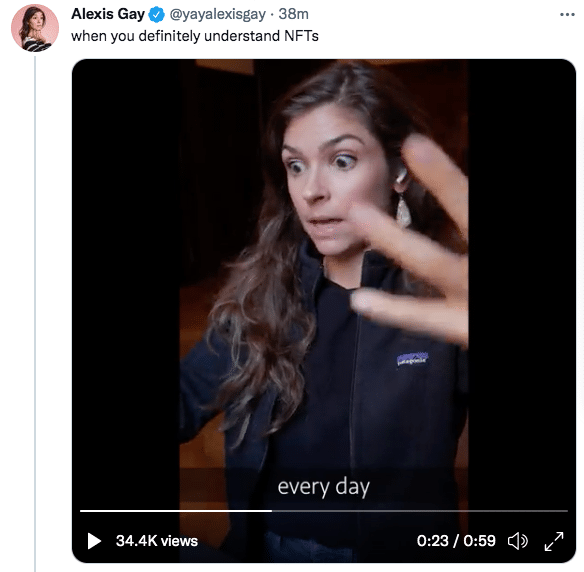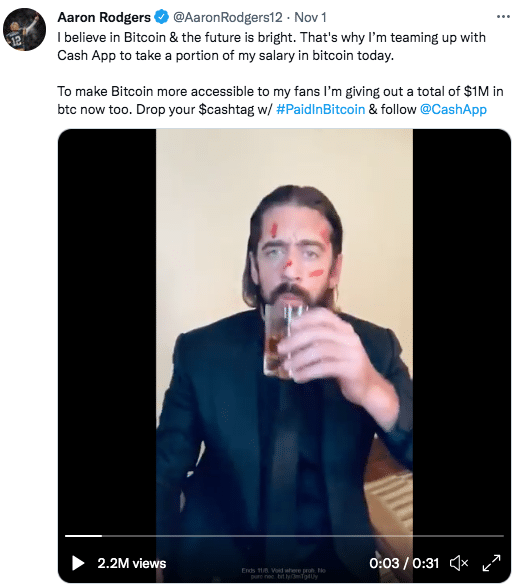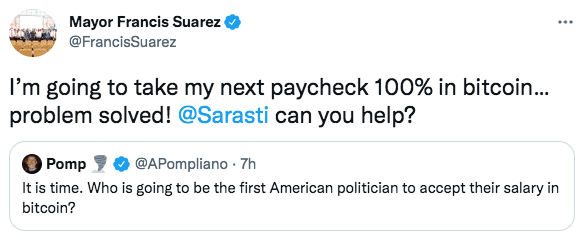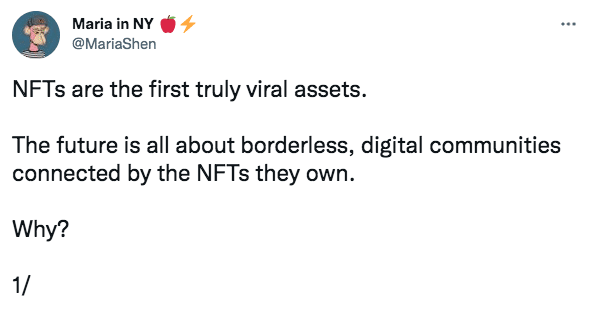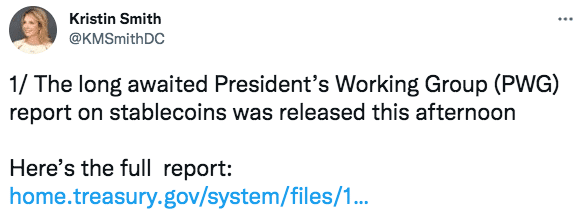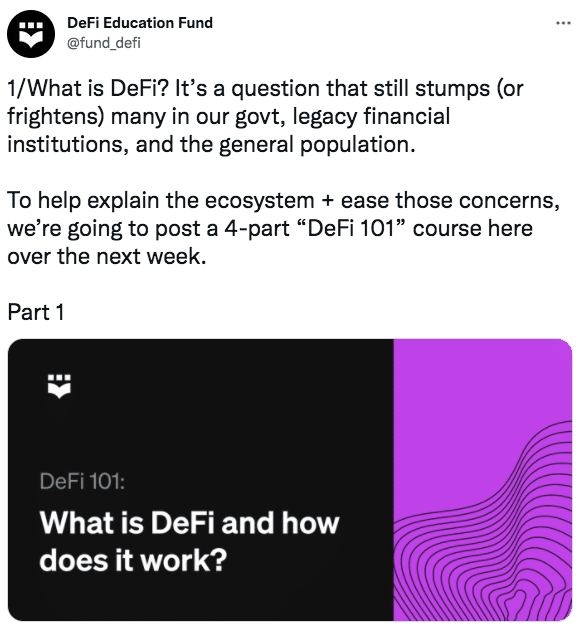November 3, 2021 / Unchained Daily / Laura Shin
Daily Bits ✍️✍️✍️
-
CME Group plans to launch Micro Ether futures on December 6, 2021.
-
Quentin Tarantino is offering six uncut scenes from Pulp Fiction as NFTs on Secret Network.
-
FTX US hired Mark Wetjen, who served as a commissioner on the CFTC during Obama’s presidency.
-
According to data from The Block, the value lost to DeFi exploits in 2021 totals $680 million.
-
The SEC extended its decision deadline for the Valkyrie bitcoin ETF until 2022.
-
The Sandbox, a metaverse gaming company, closed a $93 million Series B led by SoftBank.
-
ConsenSys shareholders are readying legal actionconcerning the valuation of MetaMask and Infura.
-
Digital Currency Group is hiring advisors for a wealth management platform built specifically for crypto millionaires.
-
Live Nation and Ticketmaster launched a platform that will use NFTs as the equivalent of ticket stubs.
-
According to a job posting, Gemini, the Winklevoss-led cryptocurrency exchange, is looking to launch a derivatives platform.
-
VCs invested $6.5 billion in crypto and blockchain companies during Q3.
-
Chipper Cash, a cross-border payment company, raised a $150 million Series C at a $2 billion valuation.
-
SOL flipped ADA, becoming the fifth largest crypto asset by market capitalization.
-
Microsoft Teams is attempting to build in the metaverse.
- Nike filed for a virtual goods trademark with the US Patent and Trademark Office.
What Do You Meme?
What’s Poppin’?
With a slew of cryptocurrencies hitting all-time highs recently, as $ETH and $SAND did yesterday, it appears the demand for using cryptocurrency payment rails is rising — and from places you most likely never expect.
According to a resolution published November 1, Senator Ted Cruz is aiming to bring cryptocurrency payments to businesses on Capitol Hill in Washington, D.C.
“ACCEPTANCE OF CRYPTOCURRENCY. — The Architect of the Capitol, the Secretary of the Senate, and the Chief Administrative Officer of the House of Representatives shall each, for the Capitol Buildings that are under their jurisdiction— (1) subject to subsection (c), solicit and enter into contracts to provide food service and vending machines in such Capitol Buildings with persons that will accept digital assets as payment for goods; and (2) encourage the gift shops in such Capitol Buildings to accept digital assets as payment for goods.”
While Cruz’s resolution would not carry the force of law, according to The Block, it would require officials to take steps to make crypto payments available. Notably, the resolution was published the same day the President’s Working Group (PWG) released a document recommending that Congress limit stablecoin issuers to traditionally regulated banks. If Cruz’s resolution is implemented, it is perhaps possible that congressmen or women might peruse the PWG report, or future crypto legislation, with coffee purchased with a crypto asset.
Demand for crypto was not just limited to one Senator’s desire to pay for his vending machine snacks in crypto.
On Monday, Aaron Rodgers, the quarterback of the NFL’s Green Bay Packers, announced his decision to take part of his salary in Bitcoin through a partnership with CashApp.
Additionally, on Tuesday, Miami Mayor Francis Suarez made a similar declaration, tweeting, “I’m going to take my next paycheck 100% in bitcoin.” Suarez’s tweet came in response to a tweet from Morgan Creek’s Anthony Pompliano, who asked, “who is going to be the first American politician to accept their salary in bitcoin.” Based upon a comment from Mike Sarasti, Miami’s director of innovation and tech, it appears Suarez will be using Strike to make his Bitcoin paycheck come to fruition.
Recommended Reads
- Electric Capital’s Maria Shen on NFTs as viral assets:
- Blockchain Association’s Kristin Smith on the President’s Working Group’s report on stablecoins:
- The DeFi Education Fund on DeFi:
On The Pod…
Tor Bair of Secret on Why Private Smart Contracts Are Important
Secret Network is a privacy-first, permissionless layer 1 blockchain built for computational privacy. Tor Bair, founder of Secret Foundation, a developer of Secret Network, discusses what makes Secret Network unique, including smart contract privacy, private metadata for NFTs, and how regulators should treat privacy tech in blockchain. Show highlights:
-
- how Tor fell down the crypto rabbit hole
- what the Secret Network is and how it is bringing privacy to blockchain
- why public blockchains are problematic
- what makes Secret Network different from Monero or Zcash
- how Secret Network works from a technical perspective
- what type of applications Secret Network can support that public blockchains cannot
- why blockchain voting is probably a bad idea (for now)
- what attack vectors exist regarding Secret Network
- how Secret Network nodes work and why there are only 50 of them
- how Secret Network fixes miner extractable value (MEV)
- what DeFi applications are possible on Secret Network
- how NFTs on Secret Network are different from public blockchain NFTs
- how regulators should treat Secret Network
Book Update
My book, The Cryptopians: Idealism, Greed, Lies, and the Making of the First Big Cryptocurrency Craze, is now available for pre-order now.
The book, which is all about Ethereum and the 2017 ICO mania, comes out Feb. 22. Pre-order it today!
You can purchase it here: http://bit.ly/cryptopians


